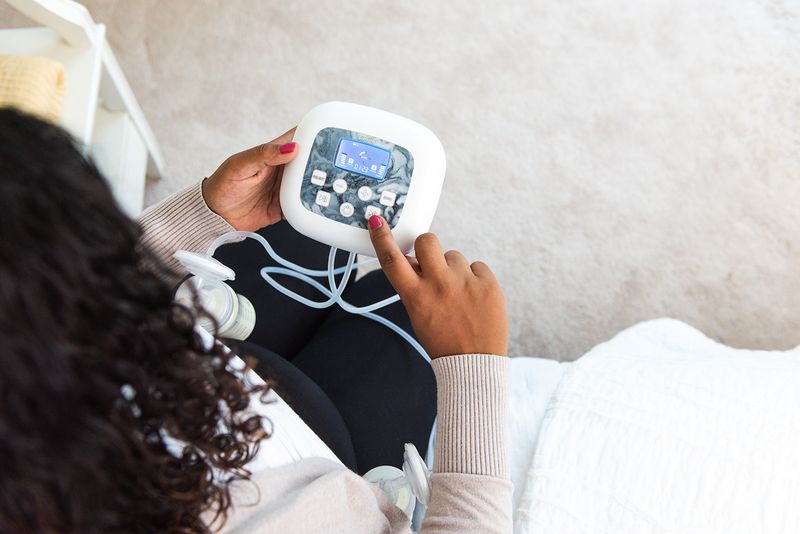Recommendations for Baby Weight Gain

Nursing problems, such as milk production and low infant weight gain, are caught early when parents monitor wet and poopy diapers and keep up with regular well-baby checks. Even if you are well-rested, eating healthy, following a consistent routine, and your baby is growing and getting enough nutrition, you may still experience a milk production issue. Production challenges can be caused by a number of factors.
Your milk supply can be affected by:
- What you eat and drink (and when!)
- How much you rest and sleep
- Your state of mind and mental health
- Your age
- Number of children you have
- Your desire to nurse
- Your nursing capabilities and techniques
- Baby’s latch-on abilities
Whether or not you choose to nurse, it is very important to take your baby for their regular well-baby check-ups. These check-ups will help you and your baby’s doctor ensure baby is getting enough milk and growing at a healthy rate. The best way to tell your child is getting enough nutrition is consistent weigh-ins.
Colostrum
During the first week of your baby’s life, your mammary glands will produce colostrum for baby to drink. Colostrum is rich in antibodies and aids baby’s immune system. It also helps baby pass their first bowel movement, called meconium. Meconium is black and tarry-looking and is in the first few diapers after birth.
Then, poo begins to transition to a brown substance and, after your milk comes in, it turns to a yellow, mustardy stool that is loose and watery. It is normal for bottle-fed babies to pass firmer, more tannish stools (compared to nursed babies). Your baby will start having wet diapers within the first 24 hours after birth, which will increase as they grow older. (See chart on p. 25)
While your baby drinks colostrum, then milk, listen for a pattern of “suck, suck, suck, swallow.” This should be a rhythmic pattern and you should not hear “clicking” noises.
A “clicking” sound can indicate that your baby is not properly latched on and may not be getting enough milk from you. If you hear this clicking, you should unlatch, then reattach baby. If you continue to hear clicking after reattaching your baby several times, then you may want to consult a lactation consultant or your pediatrician.
After the first week, you should see six to eight wet diapers each day and at least three bowel movements a day; urine should be clear. Baby should grow more alert every day. Your baby should also be gaining weight and growing! If you experience two days in a row that deviate from the above indicators, then you should call your pediatrician immediately.
Hydrate, Hydrate, Hydrate!
You also need to increase your water consumption to at least 2½ to 3 quarts of water per day (but not more than 3). You may also notice you are thirstier during nursing sessions. This is because the water you drink goes straight to milk production. The rule for water is to drink when thirsty and the general guide is 1 oz. of water for every pound of body weight, so: 150 lbs. equals 150 oz. of water.
Breast Tissue Discomfort and Pain
If you are very uncomfortable, notice red streaking on your breast, or have a temperature higher than 101° F, call your provider or Lactation Consultant as soon as possible.



